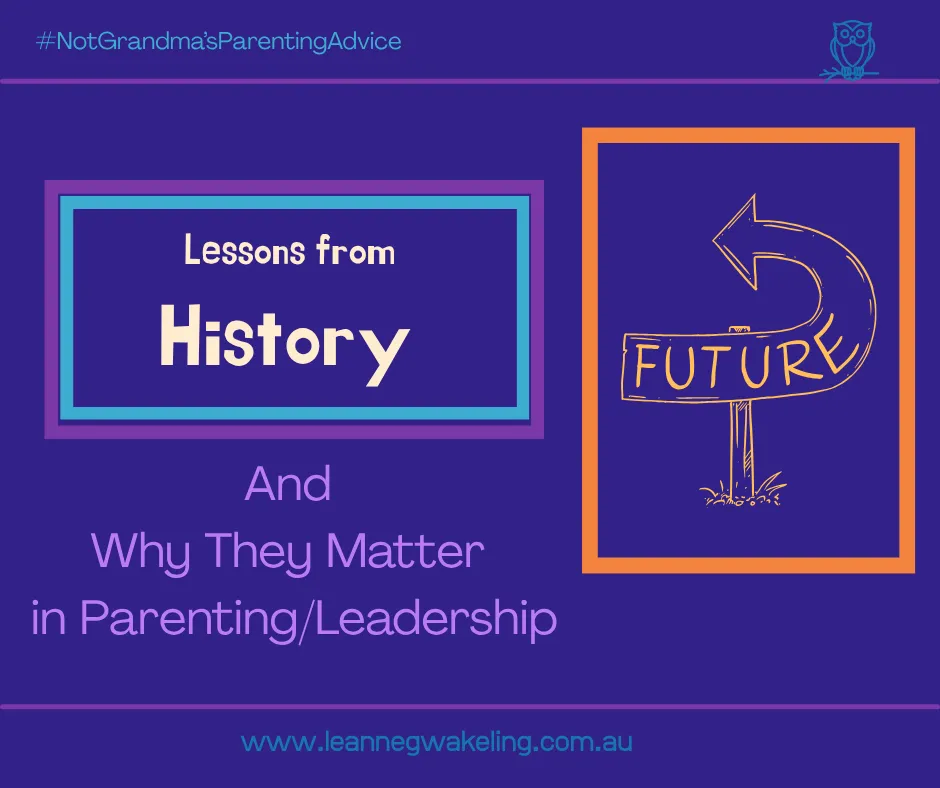
Lessons From History
Lessons From History:
Childhood Games, Sibling Conflict, Understanding Neurology, And
Why They Matter in Parenting ADHD.

As humans, we often fear our own personal history (those parts we squash or disassociated from).
It can feel painful, overwhelming, or just too much.
But, learning from history ie reflecting on our experience/the beliefs we have created doesn’t mean we have to relive it. It means we have the chance to integrate it, to understand how it shaped us, and to choose how we move forward.
We can’t change the past, but we can choose how we carry it.
Sometimes that means sitting in sorrow. Especially when our history is heavy — even the
word “difficult” doesn’t always touch the edges of lived trauma. But I’m not here to compare
or rank experiences. What I want to explore is how we move forward functionally — with
grace, intention, and the capacity to respond rather than react.
Some of us are more attached to the past than others. That’s not wrong — it’s just different.
And these differences in how we process the world can make relationships harder. When we
assume that someone else should see or feel the way we do, we risk taking their behaviour
personally.
But here’s the truth: most of what others do isn’t about us.
Even in parenting — perhaps especially in parenting — our child’s behaviour isn’t about us.
It’s about them, their brain, their needs, and how they’re learning to navigate the world.
When we take our child’s actions personally, we overestimate our own influence — and open
ourselves up to unnecessary pain. This can make us vulnerable, especially if we’re dealing
with someone whose default response under stress is control. If we’re easily offended, we
become easier to control.
I’ve seen this play out in the workplace too. Years ago, I supported someone navigating
conflict at work. They were under immense personal pressure, and their performance
dropped. Understandably. But they didn’t feel safe enough to talk about it, and their
supervisor, not knowing the full story, became frustrated. The tension escalated. Both were
stressed. Both were reacting.
In hindsight, it’s easy to say, “They should have known better.” But under stress, that’s not
how humans work.
As parents — and as leaders — being conscious means pausing before reacting. Being
strategic means asking, What else could be going on here? Where could this choice lead us?
That pause can be powerful. And difficult.
I know it was for me. When I first learned I could respond instead of react, I had
to practice that pause. It wasn’t natural. Later, I discovered I have ADHD — and that
explained a lot. My default wiring didn’t include the pause. I had to build it. Consciously.
Repeatedly.
Even with ADHD, it is possible to build new neurological responses. Neuroplasticity is real
— we can retrain our brain. It takes time, effort, and commitment. Especially when our
early conditioning wired us for reactivity, not reflection.
As I’ve come to understand more about myself and my family, I see now that my dad
probably recognised some of our differences — even if they weren’t named. At least one of
my sisters has ADHD too. None of us were diagnosed as kids, but my dad, a deeply intuitive
man and, as I now know, a Human Design Projector, led us in ways that supported our
development without necessarily having the language.
He used games — especially memory games. We’d sit on the floor and play “Memory” with
a simple pack of cards, matching pairs and training our brains without realising it. He was
building our cognitive muscles in a way that was fun, playful, and connected. And effective.
Today, those kinds of games might seem “old school” or “homebrand” — as one of my kids
likes to say — but I believe we need more homebrand in our lives. More of the simple,
tactile, human experiences that connect us and grow us without a screen in sight.
Because when we look back and learn from our history — both personal and collective — we
remember the value of small, slow, real things. The kinds of things that don’t just distract our
kids, but help them grow.
So, let me ask you:
What do you remember loving from childhood play?
What did you learn through those moments — then, or in reflection now?
Author - Leanne G Wakeling (Motherhood Maven) ADHD Relationship Mentor and Coach.